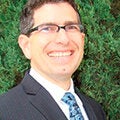This course is designed to develop your agile leadership skills and competencies of emerging business leaders via a series of experiential learning activities. Emerging business leaders across industries and sectors are faced with the challenges of leading teams in VUCA (volatile, uncertain, complex, and ambiguous) organizational contexts. The current era of digital transformation is driving unprecedented changes to the nature of work and how team members perceive the impact of such changes on their roles and the broader organizations. Leaders who possess strong agility and adaptability are better equipped to meet the diverse needs of their team members and their business units during this era of transformative organizational change.
This course offers participants a fun, experiential, and highly interactive learning experience that focuses on the development of agile leadership competencies. The course participants will complete the LEAP (Learning, Engaging, Adapting, Persevering) leadership assessment, a validated instrument that measures 20 agile leadership competencies. Examples of agile leadership competencies include strategic insight, innovating thinking, cultivating psychological safety, collaboration skills, and emotional intelligence. The assessment results and key take-aways from each class session will be used to develop a five-part Leadership Development Plan (LDP). The LDP allows participants an opportunity to clearly articulate how they will transfer their learning from the course (and from the TMP more broadly) to the leadership challenges in their job and organizational context. Course participants are offered a series of practical tools, resources, and readings to support the development of their LDPs, including practical strategies and tactics for enhancing all 20 agile leadership competencies.
Participants are encouraged to share the course tools, resources, and exercises with their own teams at work. These resources include the experiential exercises, leadership development tools, leadership development briefs (digital archive of practitioner-focused articles across all 20 leadership competencies), and discussion guides. Outlined below, each of the five course sessions feature experiential learning activities (role-plays, team simulations, etc.) that are designed for participants to develop agile leadership competencies.
Day 1: VUCA Megatrends & Agile Leadership Competencies
Our first session includes an interactive discussion of the VUCA megatrends driving the need for more agile leadership and the implications for emerging business leaders. We focus on how the digital transformation, generational shifts, and other VUCA drivers influence how leaders must engage their teams. Our first session features a fun, highly interactive team-based experiential exercise (the marshmallow challenge) that illustrates the challenges of leading in VUCA environments, and the practical implications for developing leader agility.
Day 2: LEAP Assessment & Emotional Intelligence
Our second session includes the completion of the LEAP (Learning, Engaging, Adapting, Persevering) leadership assessment, and a discussion of how to interpret and apply the results to your Leadership Development Plan (LDP). We discuss all 20 leadership competencies, and how organizations utilize assessments as part of talent review processes (nine-box grids and related succession planning activities). Our second session features an engaging experiential exercise (‘Assigned Leader Group Exercise’) that challenges the participants to build consensus and leverage the experiences and expertise of each team member. This highly interactive and practical exercise allows all participants to reflect upon their LEAP assessment results and develop initial priorities for further development across one or more agile leadership competencies.
Day 3: Building Collaboration Skills & Cultivating Psychological Safety
Our third session focuses on the development of two core agile leadership competencies, specifically collaboration skills and the ability to cultivate psychological safety. We will discuss the five trademarks of agile organizations and examples of leadership agility across organizations (the participants’ organizations as well as Google, Netflix, Nike, and other organizations), and across modalities (face-to-face and virtual context). This session features a series of role-playing exercises in which participants further develop their collaboration skills and ability cultivating psychological safety on work teams.
Day 4: Coaching & Developing Talent
Our fourth session focuses on the development of coaching and talent development skills, which represent essential agile leadership competencies. Participants will engage in interactive discussions and exercises around how agile leadership requires both feedback-giving and feedback-seeking skills. Participants are provided a concise, practical coaching model that includes four phases of a highly effective coaching session and practical strategies for giving and receiving feedback. This session features a series of role-playing exercises in which participants practice applying the coaching model to three coaching challenges that are common for emerging leaders with technical backgrounds.
Day 5: Leader Authenticity & Your Leadership Development Plan (LDP)
The final session focuses on the completion of the Leadership Development Plan (LDP), which includes a targeted action plan for enhancing three leadership competencies that are associated with your current or future job challenges. Participants are provided a list of suggested development strategies and tactics for all 20 agile leadership competencies. This session includes an interactive discussion of leader authenticity, and the importance of reflecting upon your core values and leadership principles as the foundation of your LDP. The session concludes with an engaging and practical discussion of how participants will leverage all of the learnings from their TMP experience for their LDPs and share with their teams at work.






